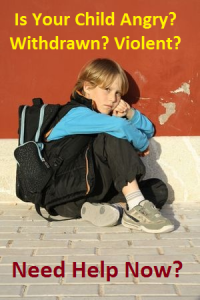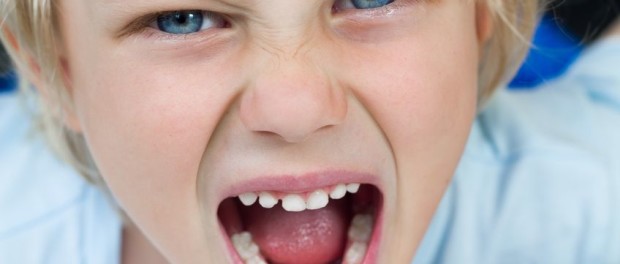Child Out of Control?
Child out of Control?
 If your child is angry, violent, withdrawn, or out of control, s/he is shouting out for help. Parents can easily feel overwhelmed or defensive when children become aggressive or withdrawn, but in reality that behavior is a valuable clue to your child’s inner processes. Moms and Dads, please do not wait another moment to get the help your child needs and deserves.
If your child is angry, violent, withdrawn, or out of control, s/he is shouting out for help. Parents can easily feel overwhelmed or defensive when children become aggressive or withdrawn, but in reality that behavior is a valuable clue to your child’s inner processes. Moms and Dads, please do not wait another moment to get the help your child needs and deserves.
All parents must reevaluate and make mid-course corrections. In fact, knowing when to make changes is a characteristic of great parenting!
Responding to out of control children requires a combination of effective parenting responses with some sound support from a counselor or child behavior expert. Sometimes your child’s pediatrician or school counselor can provide expert support to help you work through behavior challenges with your child. Other times, you may need to seek the advice of a counselor, licensed clinical social worker, family therapist, or psychologist.
The first step in getting back control from an out of control (angry, withdrawn, abusive, violent, or enraged) child is to KNOW that you have the power to set things right! The next step involves identification of the issues affecting your child’s behavior. Follow us for a 10 part series on how to address the Out of Control Child !!!
NOTE: If your child has been diagnosed with an attachment disorder, including RAD or Reactive Attachment Disorder, please seek expert support from a professional who is specially trained in this area. Children can develop disorganized attachment in response to a variety of situations. Some common ways that children suffer from poor development of attachment include separation from parent or primary caretaker such as through medical challenges (of parent or child), adoption, or foster care. Attachment challenges can also be triggered by long absences of the parent/caretaker, such as deployment of military personnel or long on-the-road business trips. Separation and divorce can also impact development of attachment, especially when the child does not have equal access to both parents. Still other sources of interruption of healthy attachment development include trauma, neglect, and abuse. If you need more support in dealing with a diagnosed or suspected case of Attachment Disorder or Disorganized Attachment, please contact our sponsor The Orchard Human Services, Inc. as they specialize in providing support to parents and educators in the area of promoting healthy development of attachment.
Children are the gift of our future.












